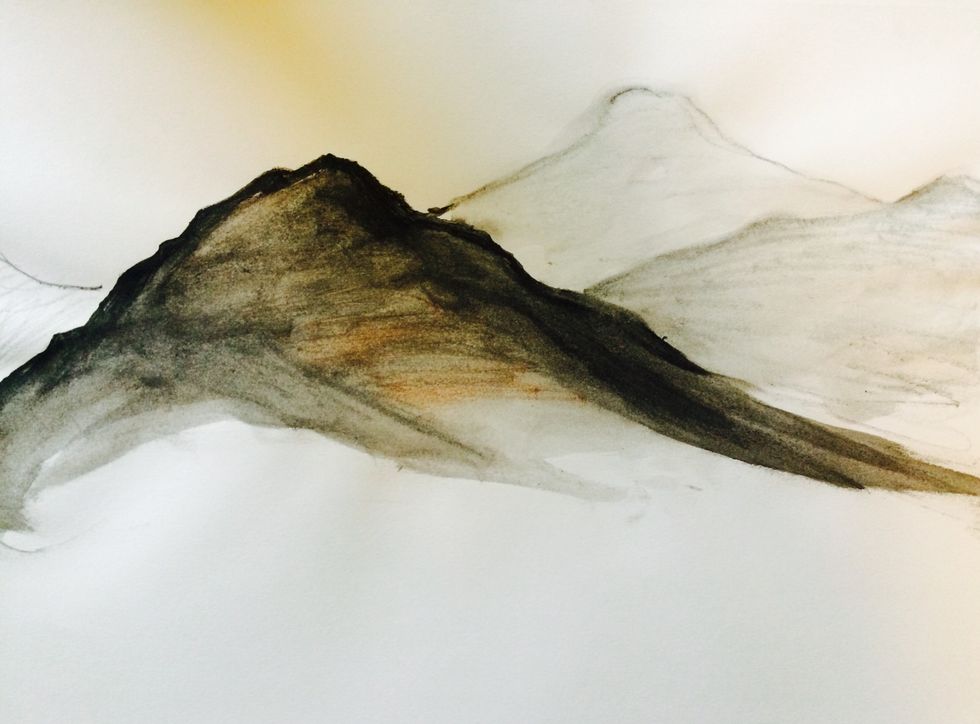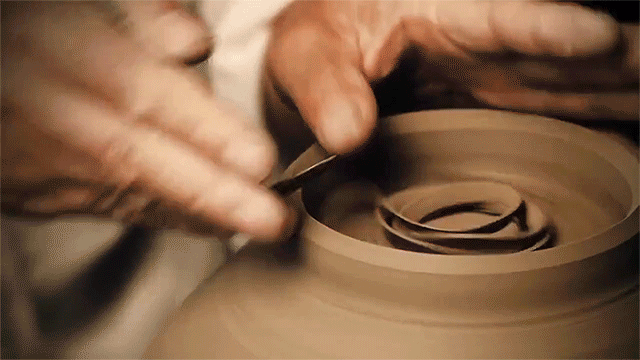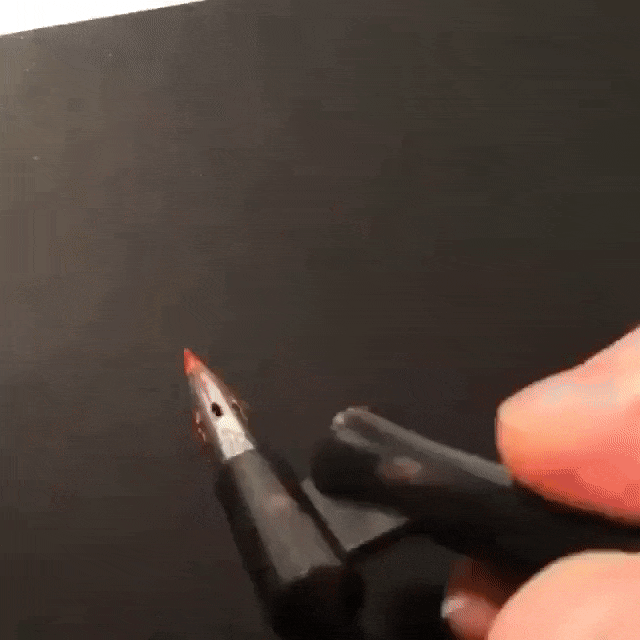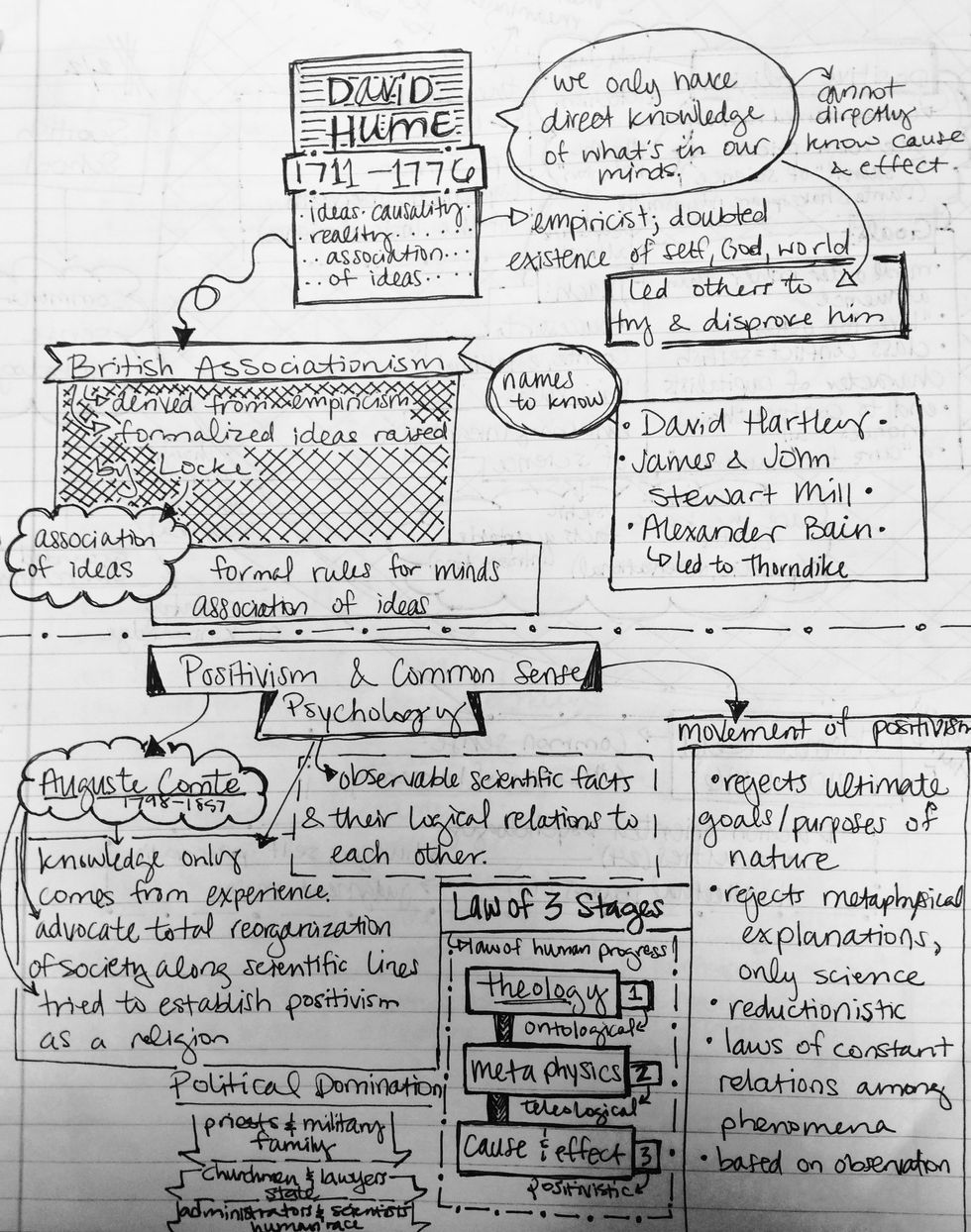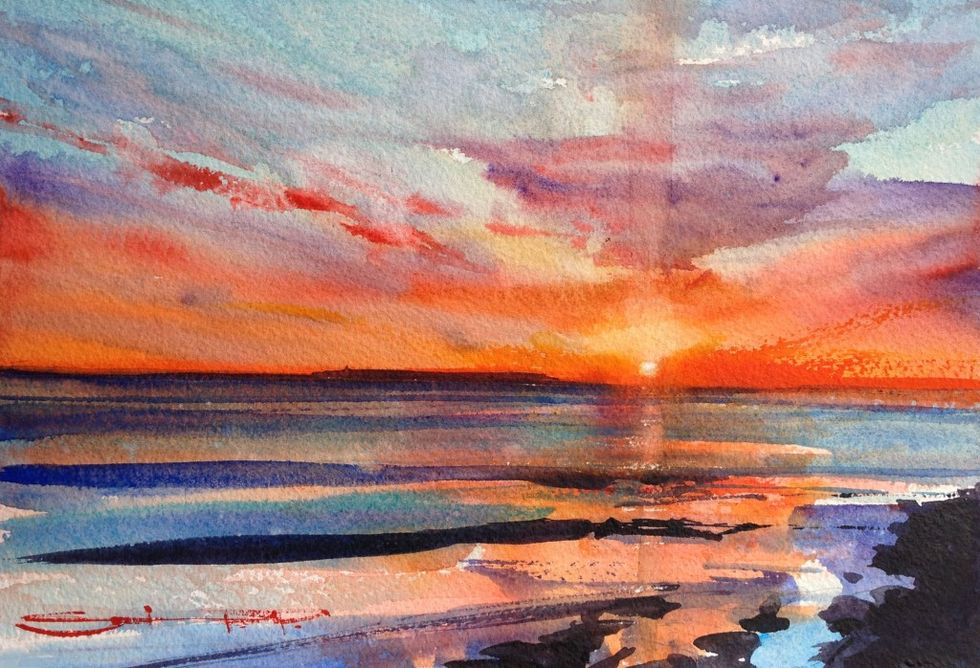I've begun to notice something about art: people seem to think that it's only for artistic people. I've heard many people dismiss their own ability to try making something based on skill level or exposure.
As someone who loves art (despite a lack of skill or experience), I've wondered why so many people don't even engage with their inner creator; in my opinion, art isn't even about the final product. Maybe you're an incredibly artistic person, or maybe you feel limited to drawing stick people. Either way, I want to convince you that the best part about art is trying something outside of your comfort zone, not for the product but for the process.
Here's a list of reasons why art is good for you, even when you're not good at it!
1. Art can be a great source of stress relief.
I'm taking a ceramics class this semester, and the time I spend in the studio is some of the most stress-free time I have. This is partially due to the way that time seems to become relative; I can spend an hour on the pottery wheel and not even notice. But the physical motions of creating are also really soothing: it's really hard to be breathing quickly, or be tense, when your entire attention is absorbed into the creation in front of you.
I know that some of you have had less than relaxing experiences trying to be artistic: the frustration of failure or the inability to create the thing in your mind, can be incredibly irritating.
I have two responses to this: one, maybe working through your frustrations with art can become a therapeutic process of learning to let go. Two, most experiences of frustration in life are towards things that we have no control over. With art, you have complete control to give up on a project, to start over or to rip it up in spite. While hopefully this isn't your only response, maybe there is something stress-reducing about have complete freedom with your creation.
2. Artistic skills aren't used very often; it's good to diversify your brain.
You know the feeling: it's been a long day of using the same skill set (studying, reading, typing, talking...) and you're completely exhausted. My first inclination is to start a show on Netflix and let my mind relax for a while. But what if there was a different, more meaningful way to unwind? That's part of the reason I love art.
I know those adult coloring books in the checkout isle always seem a little silly; after all, why take time coloring when there's so many other things to do? I understand that logic, but imagine your brain in terms of diet: eating just one type of food, even if it's healthy, is never as good for your body as diversifying your diet.
Think of artistic downtime as a way to give your brain a more balanced "diet" of activities through the day. Plus, I've found those coloring books to be pretty satisfying, and they take some of the scary guesswork out of trying something artistic.
3. Art is like any other skill: the more you practice, the better you get.
That's right: artistic talent, like any other talent, isn't just an innate skill that you either have or don't have. Sure, some people have a higher baseline of aesthetic awareness, color sense or fine motor skills; but like any other skill, you can move your baseline by putting in the work.
I've found this to be particularly true in my ceramics class, where I have seen steady (albeit slow) progress in my ability to make things on the wheel. There are certain base components of making a good bowl or cup on the wheel: it must be centered, it must remain an even thickness all around and you must keep the clay wet enough that it doesn't gain too much friction on your hands.
Some people naturally "get" how to do this; others take weeks of constant practice before throwing a centered piece (throwing is ceramics-talk for creating a piece on the wheel). But each person is guaranteed to have made progress by the end of the semester, merely by practicing.
4. Building your artistic skills can add interest and beauty to every part of your life.
This school year, I changed the way I take class notes. I used to just write the information that I saw, almost on autopilot. I realized that I wasn’t actually having to pay very much attention. To try and change that, I started taking notes in more of a “bullet journal” style; I would try to arrange the material in a graphic, visually interesting way.
I found that my memory of course material increased, and I was more content to study from my notes than before. I have always been a doodler, but usually my doodles would be on the margins and not related to the material. By harnessing my artistic tendencies and practice for the sake of note-taking, I was able to improve my daily tasks and add even more artistic abilities to my repertoire.
This is just one way that giving yourself artistic outlets can end up being incredibly useful. It’s not just about having an ability; it’s about altering your perspective on life, so that you can see beauty in new and unexpected places.
5. Participating in creative design helps us experience a key aspect of God.
One of the first things we learn about God in Genesis is that He is a creator. He designs various elements of the world, calling the finished product “good.” We are made in His image, and I would argue that being creators is part of that image.
Of course, there are many kinds of creative tasks; making art is just one of them. But I have found a profound spirituality in the blank page, the ink pen, the clay coil; each basic material holds the promise of something to come, and of a transformation waiting to occur. Maybe incorporating art into your quiet time with God, or using it to help center your mind before reading the Bible can actually help your spiritual life.
I hope this article inspires you to try something new and artsy this week, or at least to consider how you might make art a more integral part of your life. Thank you for reading!

